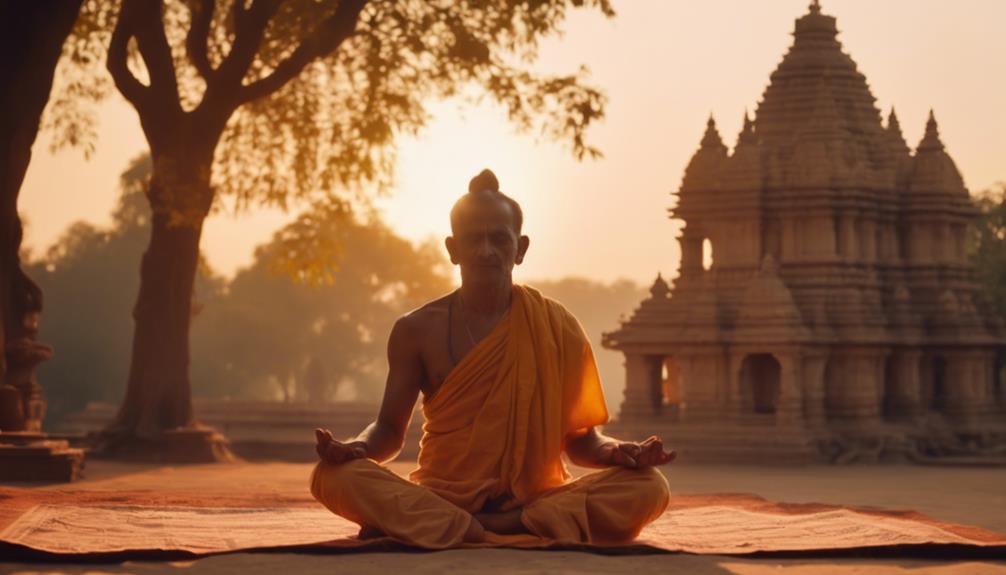
Yoga, a practice that has transcended borders and cultures, invites millions to stretch, breathe, and connect with their inner selves. But in this vibrant tapestry of movement and mindfulness, certain religious beliefs stand against it, often sparking lively debates. So, which religion, if any, shuns the ancient practice of yoga? Let’s embark on a cheerful exploration of the spiritual landscape to unravel this question and see how yoga and various beliefs interact!
Unraveling the Mysteries: Which Religion Shuns Yoga?
While yoga has garnered immense popularity in the Western world for its physical and mental health benefits, some groups, particularly conservative strands of Christianity, express reservations about its practice. They often voice concerns that yoga’s roots in Hinduism and its spiritual aspects conflict with the teachings of Christianity. This apprehension stems from a belief that engaging in yoga might lead practitioners to embrace philosophies that diverge from their own faith. It’s as if they fear wandering into foreign territory where traditional values might get lost.is chair yoga freewhat is core power yoga
Moreover, some Islamic scholars have also raised eyebrows at yoga, particularly when it is practiced in a way that emphasizes spiritual or meditative aspects that do not align with Islamic teachings. They argue that the focus on achieving a state of oneness or enlightenment can detract from the monotheistic core of the faith. Just like a mischievous kitten, these interpretations have sparked conversations and debates, drawing playful yet serious lines in the sand about what is acceptable within the realm of spirituality.
Interestingly, Buddhism, which shares roots with Hinduism, often embraces yoga as a complementary practice rather than a conflicting one. This curious twist shows the diverse interpretations of spirituality and highlights how interconnected yet varied world religions can be. So, while some religious groups may stand in opposition, others show that yoga can harmoniously blend with spiritual practices, demonstrating the multifaceted nature of belief systems.
The Cheerful Clash: Yoga vs. Beliefs—Who Stands Where?
The interplay between yoga and certain religious beliefs can resemble a joyful dance—sometimes harmonious, sometimes clashing—but always filled with intriguing dynamics. Many adherents of conservative Christianity warn against the spiritual implications of yoga, believing that the poses and breathing techniques may inadvertently lead practitioners away from their faith in Jesus Christ. They see the focus on self-awareness and inner peace as potential distractions from traditional worship. Yet, the conversation remains light-hearted, as yoga enthusiasts often try to share their perspectives with a smile, inviting others to join in the stretch!
On the other hand, many yoga practitioners find that the practice enriches their lives, regardless of their spiritual backgrounds. They argue that yoga can be adapted as a purely physical practice, a way to enhance flexibility, strength, and overall wellness without delving into its spiritual roots. This perspective is akin to enjoying an Italian pasta dish without necessarily subscribing to the intricacies of Italian history. Many believe that yoga can exist in harmony with various religious beliefs, creating a delightful fusion rather than a recipe for conflict.
As the world grows increasingly interconnected, the dialogue surrounding yoga and religion continues to evolve. People are experimenting with new interpretations, allowing for a cheerful blend of practices that respect individual beliefs while embracing mindful exercise. So, while some traditions may raise their flags against yoga, others are joyfully waving them in support, creating an intriguing tapestry of belief and practice that reflects our diverse human experience.
In conclusion, while some religions may take a stance against yoga—most notably certain conservative Christian and Islamic groups—others celebrate its flexibility and adaptability. The cheerful interplay between yoga and religious beliefs encourages ongoing discussions and explorations. Whether you’re a yoga enthusiast or a curious observer, the journey is filled with opportunities for understanding and growth. So, roll out your mat, take a deep breath, and let the delightful dance of ideas continue!





